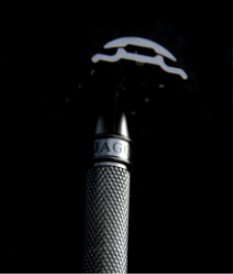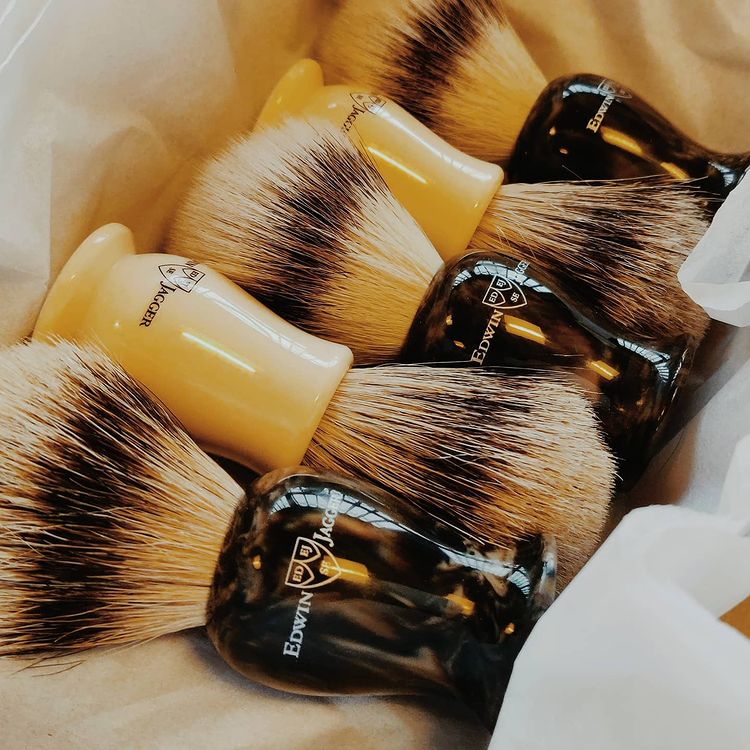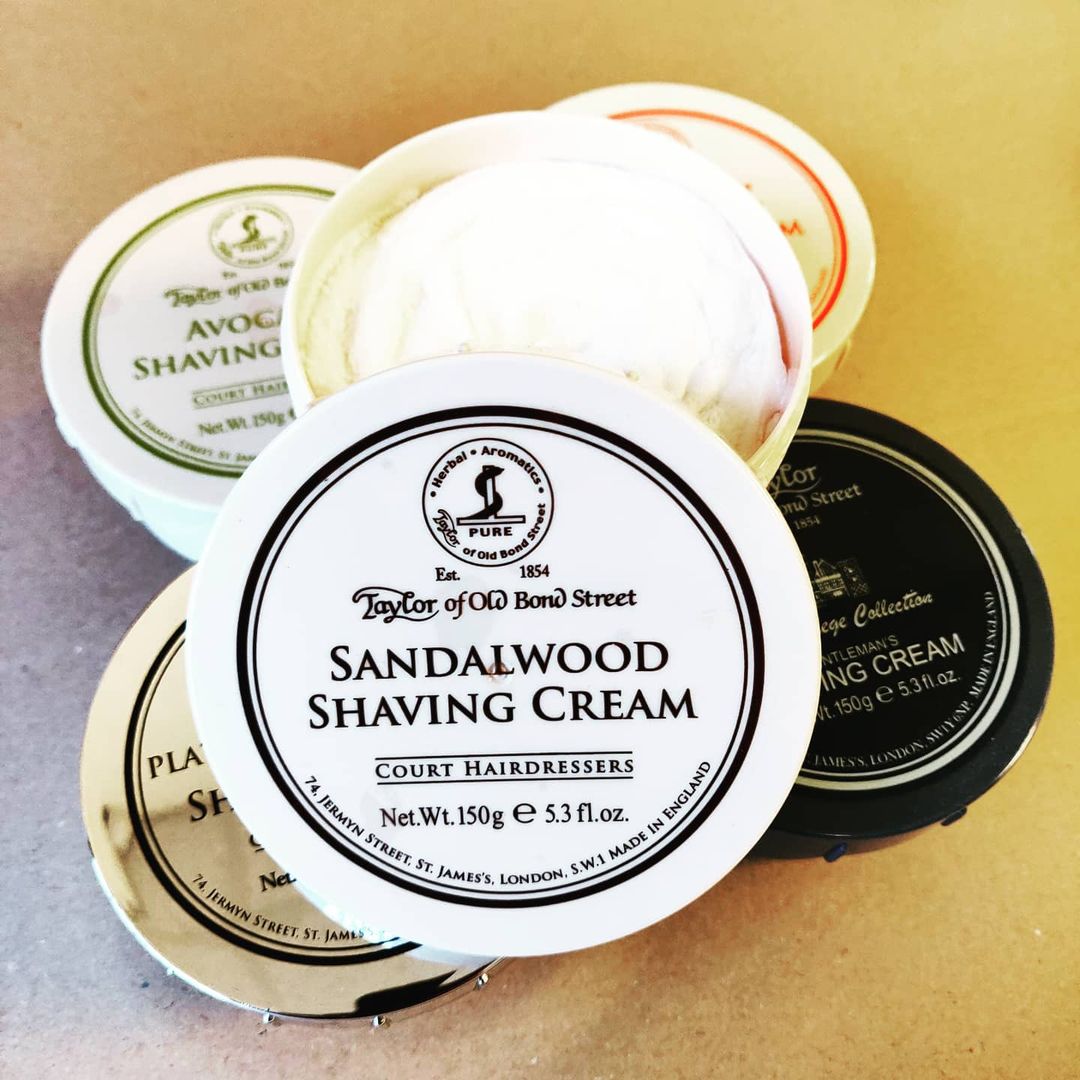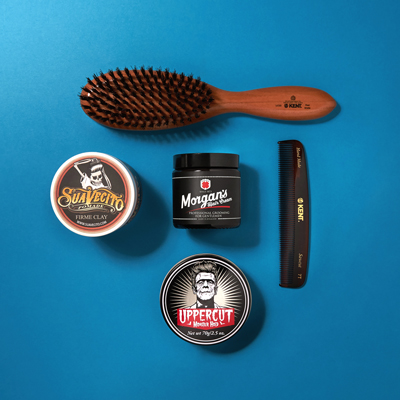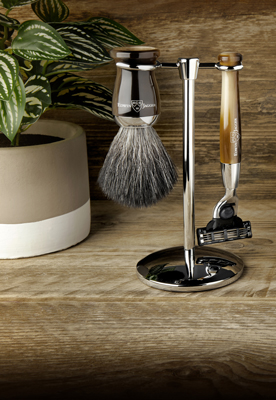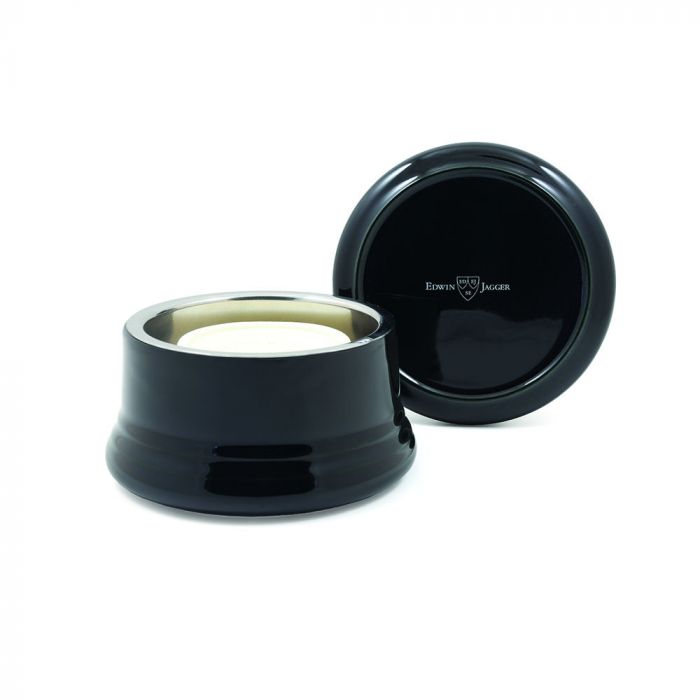Shaving Sensitive Skin - How the Experts Do It
More and more men report that they have sensitive skin. For the majority of these people, skin sensitivity will not be a result of their natural skin type, but rather the way they shave. The English Shaving Company have the best tips for shaving sensitive skin, with proven methods to stop skin sensitivity.
 If you think you have sensitive skin, the first thing to do is examine your shaving routine and whether there are any changes you could make. It could be that your skin wouldn’t be classed as sensitive in medical terms, but the way you shave leads to sensitivity, shaving rash, and irritation.
If you think you have sensitive skin, the first thing to do is examine your shaving routine and whether there are any changes you could make. It could be that your skin wouldn’t be classed as sensitive in medical terms, but the way you shave leads to sensitivity, shaving rash, and irritation.
Cleansing and Exfoliating Sensitive Skin
Washing your face is important as it removes bacteria that can lead to rashes and irritation. However, it’s vital that you don’t just use any old bar of soap, but find a gentle face wash that’s free from potentially irritating chemicals. These face washes are often less aggressive than those used on the rest of the body, and also help to prevent over drying which can make your skin even more sensitive. It’s also a good plan to moisturise your skin after your wash it to really reduce drying. If you’re shaving skin that’s already dry and damaged, you’re much more likely to experience symptoms of sensitivity.  Exfoliating is also a great way to prevent irritation when shaving sensitive skin. It removes the build up of dead skin cells and dirt, and helps to prevent ingrown hairs. Ingrown hairs are one of the main causes of shaving rash. When you exfoliate your face, you can use an exfoliating soap or your daily face wash and a cloth or flannel. Be sure to treat your face gently; don’t apply too much pressure when you use a cloth - let the texture of the material do the work.
Exfoliating is also a great way to prevent irritation when shaving sensitive skin. It removes the build up of dead skin cells and dirt, and helps to prevent ingrown hairs. Ingrown hairs are one of the main causes of shaving rash. When you exfoliate your face, you can use an exfoliating soap or your daily face wash and a cloth or flannel. Be sure to treat your face gently; don’t apply too much pressure when you use a cloth - let the texture of the material do the work.
Your Shaving Cream or Soap
 The impact of your shaving cream or soap can’t be overstated when it comes to shaving sensitive skin. There are a number of factors that are important to consider: the ingredients in your soap, the moisturising effects, and the lubrication or glide. The ingredients in your shaving soap could be irritating your skin. Canned and pressurised shaving cream is often filled with chemicals that cause irritation and lead to skin sensitivity. You might also notice that it’s drying out your skin, exacerbating already sensitive skin. It’s best to invest in a high-quality shaving soap or cream that will moisturise your face and provide protection. We find that the best options are the soaps you whip into a lather yourself with a shaving brush. These tend to be much more creamy and hydrating. The brush also lifts your beard away from the face allowing for a cleaner cut and less chance of ingrown hairs. Good shaving soaps also provide an effective layer of lubricating protection. It’s vital that your shaving cream or soap lubricates your shave effectively as this creates protection between the razor blades, which cause abrasion, and your skin. Using a quality shaving soap is essential when shaving sensitive skin.
The impact of your shaving cream or soap can’t be overstated when it comes to shaving sensitive skin. There are a number of factors that are important to consider: the ingredients in your soap, the moisturising effects, and the lubrication or glide. The ingredients in your shaving soap could be irritating your skin. Canned and pressurised shaving cream is often filled with chemicals that cause irritation and lead to skin sensitivity. You might also notice that it’s drying out your skin, exacerbating already sensitive skin. It’s best to invest in a high-quality shaving soap or cream that will moisturise your face and provide protection. We find that the best options are the soaps you whip into a lather yourself with a shaving brush. These tend to be much more creamy and hydrating. The brush also lifts your beard away from the face allowing for a cleaner cut and less chance of ingrown hairs. Good shaving soaps also provide an effective layer of lubricating protection. It’s vital that your shaving cream or soap lubricates your shave effectively as this creates protection between the razor blades, which cause abrasion, and your skin. Using a quality shaving soap is essential when shaving sensitive skin.
Shaving Technique
It could also be that your shaving technique is triggering skin sensitivity. When you shave, be sure to first shave with the grain - the direction in which your hair grows. You should be able to get the majority of hairs on this run. It’s more gentle on your skin and on your hairs. If you find some hairs have been missed, or simply want a closer shave, reapply your shaving soap or cream then go across the grain. Once you’ve done this, reapply the soap once more and go against the grain. This is known as the ‘triple pass’ technique.
Your Razor
Ensure that you always use a razor with sharp blades. (Read our guide on how to keep your razor blades sharp!) Over time, blades become dull and can also harbour bacteria. This leads to uneven shaving that irritates skin, as well as increasing the chance of getting a rash. The best option is to use a razor where you can change the blades regularly and therefore keep them sharp. When shaving sensitive skin, it’s also important not to apply too much pressure; let the razor do the work. This prevents over-abrasion that can lead to irritation. We find the best razor for this is the double edge safety razor. It produces a close shave, while the weight of the razor does most of the work for you.
 Aftercare
Aftercare
The attention you pay after shaving sensitive skin is another important factor when preventing irritation. When it comes to aftershaves, you have two options: aftershave splash or aftershave lotion. Both have different advantages, but when it comes to sensitive skin it might be worth trying an aftershave lotion. Lotion puts more emphasis upon moisturising your skin and therefore is a great option to minimise irritation. It’s also important to look for an alcohol-free aftershave lotion (like e many here at The English Shaving Company!) as these are much less likely to cause irritation.
Medically Sensitive Skin
While the majority of men who suffer from irritation when shaving have sensitive skin due to the shaving technique or products, there are those who have medically sensitive skin. There are a huge number of different types of sensitive skin that a dermatologist could diagnose. Skin reactions, for example, are where your skin undergoes an allergic reaction due to an ingredient in a product. Very dry skin means that skin is so dry it no longer properly protects the nerve endings and slight touches can feel extremely painful. There are many other conditions including eczema and severe ingrown hairs. If you think you’re suffering from a skin condition, the first step is to head to the doctors. They’ll be able to offer the best advice and help. There are other steps in addition to the ones above you can take to reduce irritation, rashes, and aggravation when shaving sensitive skin:
- Choose products specifically formulated for sensitive skin. These are products which often contain less ingredients than non-sensitive alternatives and so are less likely to aggravate your skin. There are products for sensitive skin in every area including face wash, shaving creams, and aftershaves.
- Don’t shave every day. Shaving is an abrasive process so leaving it a couple of days between each shave might be beneficial if your skin is struggling. It’s sometimes worth having a little scruff to avoid itchiness and irritation.
- Use suncream. When the weather gets warm, it’s vital you protect your face from sun damage. However, be fussy when choosing your suncream. Suncream works in two ways: ingredients that physically block the UV light and ingredients that chemically block it. Make sure you avoid ones with chemical ingredients (such as avobenzone, octinoxate, and oxybenzone) as these can irritate even non-sensitive skin. You could ask your doctor for a recommendation if you’re struggling to find something suitable.
If you struggle when shaving sensitive skin, try following our tips. Let us know in the comments the difference it makes to your shave! Why not read some of our other blogs, such as how to spring clean your routine! We have loads of information on our website.



